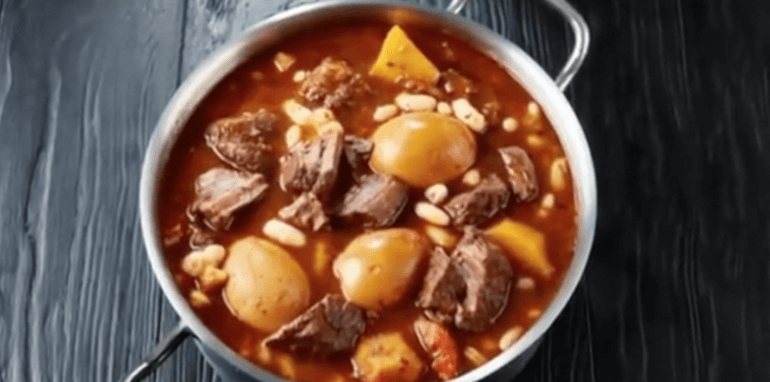
What is Cholent and Why Do Jews Eat It?
Dear JITC-
Mayim Bialik just mentioned cholent on Jeopardy. What is it and why do Jews eat it?
Thank you,
A
Dear A-
Thanks for your question. Cholent is a form of stew traditionally eaten at the Shabbos afternoon meal. The reason for it is comparable to the reason for lighting Shabbos candles.
Exodus 35:3 tells us, “Do not light fire in any of your camps on Shabbos.” While the Torah permits a light that was lit before Shabbos, the Sadducees (a heretical sect) did not accept the oral tradition and maintained that one had to sit in the dark all Shabbos. The Sages therefore instituted lighting candles at the start of Shabbos and Yom Tov specifically to counter this heretical opinion. Lighting candles is one of the seven mitzvos d’rabbanan (rabbinically-instituted mitzvos) for which we recite a bracha, just as we do with miztvos from the Torah.
We eat cholent for a similar reason. In the eighth century, the Karaites (another sect) likewise rejected the oral Torah and ruled that no fire could burn on Shabbos. In order to counter their views, two practices arose. The first is that we read the Mishnaic chapter “Bameh Madlikin,” which addresses the laws of lighting fires for Shabbos, as part of our Friday night service. The second is that we eat hot food on Shabbos – heated on a fire lit from before Shabbos, of course. This food is called “cholent” from Old French words meaning to keep warm. The Avudraham, a 14th century Torah authority, opined that if one refuses to eat hot food on Shabbos, he should be investigated to make sure that he is not a heretic.
Here’s an unrelated fun fact: 17th century Puritans didn’t work on their Sabbath, which they observed on Sunday. So, like the Jews, they prepared food on their “erev Shabbos” (to them, Saturday) to heat for their Sabbath day meal. Their “cholent” consisted of parboiled beans and bacon baked in sauce at a low temperature for a long period of time. I’m not saying they stole the idea from us but every time you eat baked beans – even without the bacon – you’re basically eating “Puritan cholent.”
Sincerely,
Rabbi Jack Abramowitz
Educational Correspondent
Follow Ask Rabbi Jack on YouTube
If you found this content meaningful and want to help further our mission through our Keter, Makom, and Tikun branches, please consider becoming a Change Maker today.







